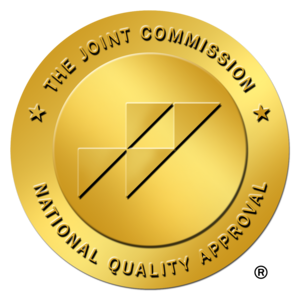Recovery is about more than just stopping drugs or alcohol. It’s about learning how to feel your feelings, stay calm during stress, and make healthy choices. That’s where emotional sobriety comes in.
In this blog, we’ll break down the emotional sobriety definition and show you how it helps people stay well for the long run.
Emotional Sobriety Definition: What It Really Means
The emotional sobriety definition is simple: it’s the ability to handle your emotions in a healthy way, without letting them control you. When people first stop using drugs or alcohol, they often still feel anxious, angry, or overwhelmed.
That’s normal. Emotional sobriety helps you deal with those feelings without going back to old habits.
Think of it like building a muscle. You learn how to stay steady when things get tough. You recognize your feelings, talk about them, and respond instead of react.
At Atlas Behavioral Health, we help clients build emotional strength through therapy, group work, and mindfulness. Our team understands that feeling better emotionally is just as important as staying clean physically.
Physical sobriety is when the substance use stops. Emotional sobriety is when the healing really begins. That’s what keeps people strong over time.
Understanding the emotional sobriety definition is the first step in creating a life that feels balanced, peaceful, and worth living.
Why Emotional Sobriety Matters in Recovery
A lot of people think that once they stop using, the hard part is over. But without emotional sobriety, it’s easy to slip back into old habits.
That’s why understanding the emotional sobriety definition matters so much in recovery.
When you’re emotionally sober, you can handle stress, sadness, anger, and even joy without turning to substances. You can stay grounded during good and bad times. Even during events or holidays you can stay sober. You don’t get stuck in negative thinking or react in ways that hurt you or others.
At Atlas Behavioral Health, we focus on helping you reach this point. Through individual and group therapy, we teach skills that help you manage tough emotions. We also explore the root causes behind those emotions, like past trauma or relationship struggles.
The emotional sobriety definition isn’t just about feelings—it’s about freedom. It means being able to face life as it comes, without fear of falling apart. It gives you the power to stay steady even when things don’t go your way.
And that power? It’s what makes long-term recovery possible.
How to Build Emotional Sobriety at Atlas Behavioral Health
The emotional sobriety definition shows us that real healing goes beyond quitting substances. But how do you actually build emotional sobriety? At Atlas Behavioral Health, we make it a core part of every treatment plan.
We use proven therapies like Cognitive Behavioral Therapy (CBT) and Dialectical Behavior Therapy (DBT). These approaches help you understand your thoughts, manage your reactions, and find new ways to cope.
We also offer trauma-focused care, because many emotional struggles come from painful past experiences.
You’ll also find holistic therapies that support emotional growth—like mindfulness, breathwork, and creative expression. These help you stay present, manage anxiety, and reconnect with yourself in a safe and meaningful way.
In group sessions, you’ll learn from others who are working on emotional sobriety too. It’s a space to grow, share, and feel supported. Emotional sobriety also means learning to nurture yourself, something many people never learned growing up.
When we say we help you achieve emotional sobriety, we mean it. It’s not just a goal—it’s a skill we help you practice every day. The emotional sobriety definition becomes real when you start to feel stronger, calmer, and more in control of your life.
Emotional Sobriety in Real Life: What It Feels Like
Let’s talk about what emotional sobriety looks like day-to-day. Once you understand the emotional sobriety definition, it’s easier to recognize it in real life.
It’s waking up and knowing how to deal with a hard day. It’s feeling sadness but not getting stuck there.
It’s noticing when you’re stressed and using the tools you’ve learned to calm down. It’s making choices based on what’s right—not just what feels good in the moment.
At Atlas Behavioral Health, our clients tell us they feel lighter when emotional sobriety starts to take hold. They reconnect with loved ones. They find joy in small things again. They stop reacting and start responding.
Emotional sobriety doesn’t mean you’ll never feel upset. It means you’ll know what to do when those feelings come up. That’s powerful.
Living with emotional sobriety means living with freedom. You’re not controlled by your past, your emotions, or your cravings. You’re in charge of your own peace.
That’s why the emotional sobriety definition matters so much—it’s the key to lasting recovery.
Building a Life You’re Proud Of
The emotional sobriety definition isn’t just a phrase—it’s a path forward. At Atlas Behavioral Health, we help you build the emotional strength you need to stay healthy for life.
If you’re ready for recovery that lasts, we’re here to walk that path with you. Contact us today for more information on our treatment programs.


